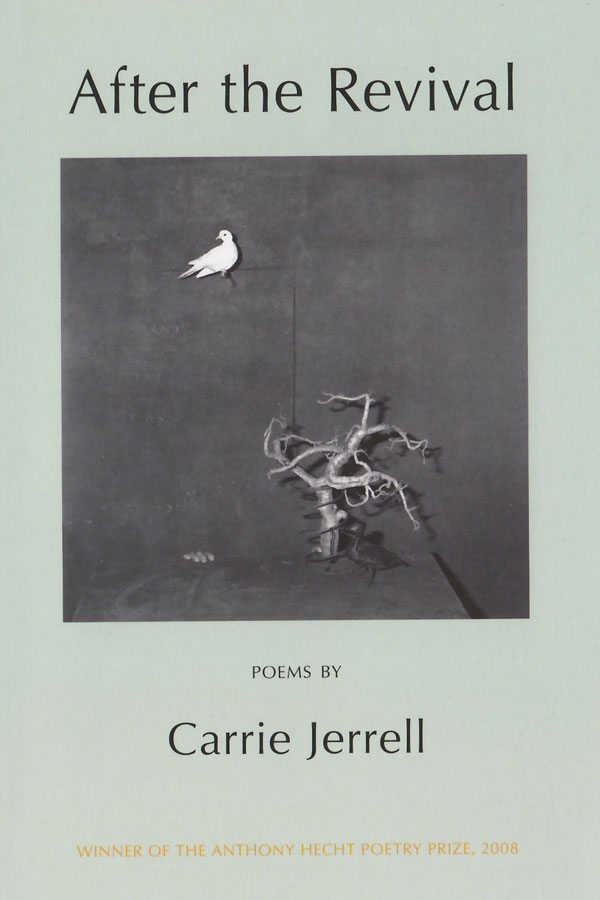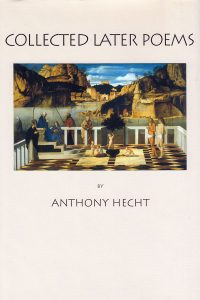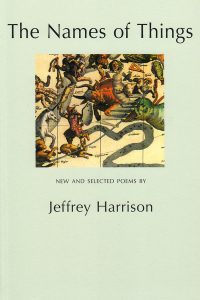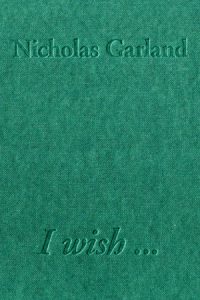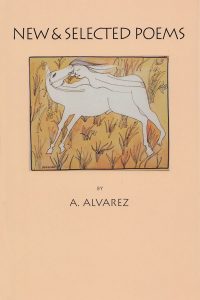After the Revival
£8.99
Winner of the 4th annual Anthony Hecht Poetry Prize
Foreword by the judge, Alan ShapiroEqual parts church hymnal and outlaw country album, Carrie Jerrell’s After the Revival exudes a reverence for all things run down and wrecked. From abandoned coal mines to overgrown cemeteries, to rivers full of leeches; from tornados to demolition derbies, to weddings gone wrong, the places and events explored in this dazzling debut collection give rise to playful, poignant meditations on the shifty limits of language, memory, faith, and love. Employing free verse as well as traditional verse forms, After the Revival is full-throated, full-throttle poetry as technically nimble as it is unflinchingly voiced. It invites readers to celebrate the sacred, the secular, and the intersection of the two, and to sing “as if we weren’t trapped on cinder blocks, but free"
Out of stock
After the Revival
“Carrie Jerrell is a poised, mature and brilliant poet. Her distinctive genius, what makes her unlike anybody else I know, is her ability to bring together such a heterogeneous mix of worlds and influences – to be open to everything formal and informal, profane and sacred, foreign and home grown.” – from judge Alan Shapiro’s foreword
“The poems in this book are full of idiosyncratic wit, keen social intelligence and a kind of sass that makes great use of both the honey and the sting. That’s pleasure enough to encounter, but add to this Jerrell’s enviable formal assuredness and you have a book that announces a bright new voice to contemporary American poetry.” – Erin Belieu
“After the Revival is a book of rich, tightly-packed poems suffused with the grit, rueful humor and pain of American country music.” – Dorianne Laux
"After the Revival carefully mourns the vulnerability of rural America, from its people and their ways, to its small towns, to the land itself. There’s a bell of desperation quietly ringing throughout this original and finely-observed book. Carrie Jerrell’s poems are loaded with longing and anguish; they hit the page as homemade creations, gritty systems of memory and transformation, rough-hewn and vital." – Maurice Manning
“Carrie Jerrell’s poems are as lyrically alive, intelligent, and unforgettable as Hank Williams’s best songs. A lover of paradox like John Donne, and as formally sophisticated, she moves between the divine and the profane in the blink of an eye. You can’t match this book for mature feeling and its rare, hopeful, sorrowing intelligence.” – Tom Sleigh
Reviews of After the Revival
Contemporary Poetry Review(November 2010)
"Jerrell seems able to write expertly in any form she chooses – blank verse, rhymed couplets, taut free verse, and she has a humdinger of a sestina, “The Country-Western Singer’s Ex-Wife, Sober in Mendocino County, California.” But the sonnet – exactly half the poems in After the Revival, if I’ve counted right, are sonnets – is her form of choice. The centerpiece of the book, in fact, is a sequence of seriocomic sonnets on the subject of modern American weddings. It’s a commonplace that rhymes in contemporary poetry ought to be unobtrusive, but rhyme is first and foremost something for both writer and reader to take pleasure in, and provided the poet has the chops, there’s nothing wrong with him or her showing off now and again … It’s both odd and entirely apt that After the Revival should have won the 2008 Anthony Hecht Prize. Apt in the sense that the virtuosity, wit and erotic and religious concerns on display in the collection would likely have delighted Hecht. And maybe it’s not that odd: maybe I had in mind too simplistic a contrast between Hecht’s high style – east coast, oriented toward Europe – and Jerrell’s southern and western twang. Overemphasizing that dichotomy would mean forgetting how much Hecht owed to southern poets like his teachers John Crowe Ransom and Allen Tate, not to mention, come to think of it, the extent to which an arch-formalist like Yvor Winters was a poet of the American west. Still, none of those poets mined the resources of the demotic as extensively as Jerrell does. Country music and the language of sermons and the Bible are more than comforts to the speaker of these poems, they’re rhetorical resources. In drawing so successfully on the texts to which many of her fellow citizens resort, with varying degrees of self-awareness, in times of heightened feeling, she’s created a poetry that’s at once genuinely popular and unabashedly literary. Not bad for a first book." – Bill Coyle
PN Review, 196(November-December 2010)
"Carrie Jerrell [is] a worthy winner of the Anthony Hecht Poetry Prize … She has a simple, but startlingly effective strategy: to set the taut rhythms and shapely stanzas won from formal education against the language of a rich, rough earlier life. Her poems embrace popular song (‘you blue jean honky-tonk angel’), shop names (‘Tater Warner’s hardware store on Main’), and the sonorous speech of the Gospels: ‘Let me testify’ … This is a poet with a future." – Alison Brackenbury
Acumen, 67, May 2010
“[I]mmediately exciting reading, poetry in an utterly distinctive voice … These poems are full of unease and energy, of humour and formal grace, anguish and allusion … She handles traditional forms splendidly – deserves a place in any modern anthology of the sonnet, and she writes a mean sestina too; she registers a particular kind of American speech without being false either to it or to the forms she uses … Her poetic voice is ‘all invitation’ in its receptiveness but the poetry she makes out of her ‘open’ voice is tightly disciplined … Assured, accomplished, zestful, wry – this is an impressive and attractive collection." – Glyn Pursglove
for Matthew
Twenty-two, come from the underground,
you’re through with the mine’s night shift and wear coal dust
like vernix while playing Clair de Lune. Moths crowd
the porch-lit screen door, and you’ve come to trust
your ear for every chord. Dark note by note,
how many hours you’ve searched for songs that burn
like lustrous rock – your damp neck creased with soot,
your hands unclean – only to be spurned
by stars repeating, Time, Time, Time.
My only brother, in the pitch of sleep, may hymns
resolve for you. May your dreams be more than ash.
May you climb to a house of light and blind
yourself at its windows, breathe its music in,
and beat your wings like prayers against the mesh.
The Waywiser Press
The Country-Western Singer’s Ex-Wife,
Sober in Mendocino County, California
Somewhere back East my late love’s all coked up,
another cowgirl wannabe lying
at his feet while he plucks a Willie Nelson song
from his beer-soaked six string and complains nobody
understands a rebel’s broken heart.
I’ve played her part, the star struck blonde in boots
and denim mini, pert boobs, and brains to boot.
Whiskey fed, dreamy, how I talked him up,
a sequined Tammy to his George, my heart
a backstage bed I wanted him to lie in.
It proved too hard, and when a harder body
came along, he said, The party’s over,
and left me listening to "Sad Songs and Waltzes,"
Waylon, steel guitars that struck like a boot
to the face. But that’s good country, right? A body
enamored with its bruises, praising its screw-ups,
the blood still wet in its wounds? Memory lies
as still as a rattlesnake until my heart
comes begging for its venom. Sink ’em in, my heart
says. I’ve been traveling on a horse called Music,
and he’s brought me here to die. I’d be lying
if I said I didn’t want to fill my ex’s boots
with spit the night I caught him with that up-
start starlet at the bar; when everybody
tried to hide in their shot glasses; when nobody
but a Broadway street preacher had the heart
to hold my hair off my face while I threw up
outside; when all the songs I loved – "Crazy,"
"Golden Ring," "Jolene" – became like boots
too busted to put on, bent-pitch ballads of his lies,
my shame sung loud in the key of C. He’s lying
from the stage, in the bar or bed, when he says nobody
understands him. I do. I’ve burned my boots,
moved west to wine and water because his heart
was a dry bottle, cold as the black rose
rotting in his lapel, and I still wake up
to his tunes: the beer, blow, boots and love, the lies
they tell and don’t. Once, I was a good-hearted woman.
Now I pray, Lord, please, somebody, shut him up.
The Waywiser Press
Excerpts
Nocturne
for Matthew
Twenty-two, come from the underground,
you're through with the mine's night shift and wear coal dust
like vernix while playing Clair de Lune. Moths crowd
the porch-lit screen door, and you've come to trust
your ear for every chord. Dark note by note,
how many hours you've searched for songs that burn
like lustrous rock – your damp neck creased with soot,
your hands unclean – only to be spurned
by stars repeating, Time, Time, Time.
My only brother, in the pitch of sleep, may hymns
resolve for you. May your dreams be more than ash.
May you climb to a house of light and blind
yourself at its windows, breathe its music in,
and beat your wings like prayers against the mesh.
The Waywiser Press
The Country-Western Singer's Ex-Wife,
Sober in Mendocino County, California
Somewhere back East my late love's all coked up,
another cowgirl wannabe lying
at his feet while he plucks a Willie Nelson song
from his beer-soaked six string and complains nobody
understands a rebel's broken heart.
I've played her part, the star struck blonde in boots
and denim mini, pert boobs, and brains to boot.
Whiskey fed, dreamy, how I talked him up,
a sequined Tammy to his George, my heart
a backstage bed I wanted him to lie in.
It proved too hard, and when a harder body
came along, he said, The party's over,
and left me listening to "Sad Songs and Waltzes,"
Waylon, steel guitars that struck like a boot
to the face. But that's good country, right? A body
enamored with its bruises, praising its screw-ups,
the blood still wet in its wounds? Memory lies
as still as a rattlesnake until my heart
comes begging for its venom. Sink 'em in, my heart
says. I've been traveling on a horse called Music,
and he's brought me here to die. I'd be lying
if I said I didn't want to fill my ex's boots
with spit the night I caught him with that up-
start starlet at the bar; when everybody
tried to hide in their shot glasses; when nobody
but a Broadway street preacher had the heart
to hold my hair off my face while I threw up
outside; when all the songs I loved – "Crazy,"
"Golden Ring," "Jolene" – became like boots
too busted to put on, bent-pitch ballads of his lies,
my shame sung loud in the key of C. He's lying
from the stage, in the bar or bed, when he says nobody
understands him. I do. I've burned my boots,
moved west to wine and water because his heart
was a dry bottle, cold as the black rose
rotting in his lapel, and I still wake up
to his tunes: the beer, blow, boots and love, the lies
they tell and don't. Once, I was a good-hearted woman.
Now I pray, Lord, please, somebody, shut him up.
The Waywiser Press

